Your cart is currently empty!
By
John Abraham
| UPDATED

Grandkids grow up fast, and sometimes it feels like their worlds are a mystery. The key to understanding them lies in asking the right questions—those that open up conversation, spark curiosity, and reveal their thoughts, dreams, and feelings. The following 34 questions are designed to encourage meaningful dialogue, build trust, and create lasting memories, turning every chat into a bridge between generations.
1. What Was the Best Part of Your Day?
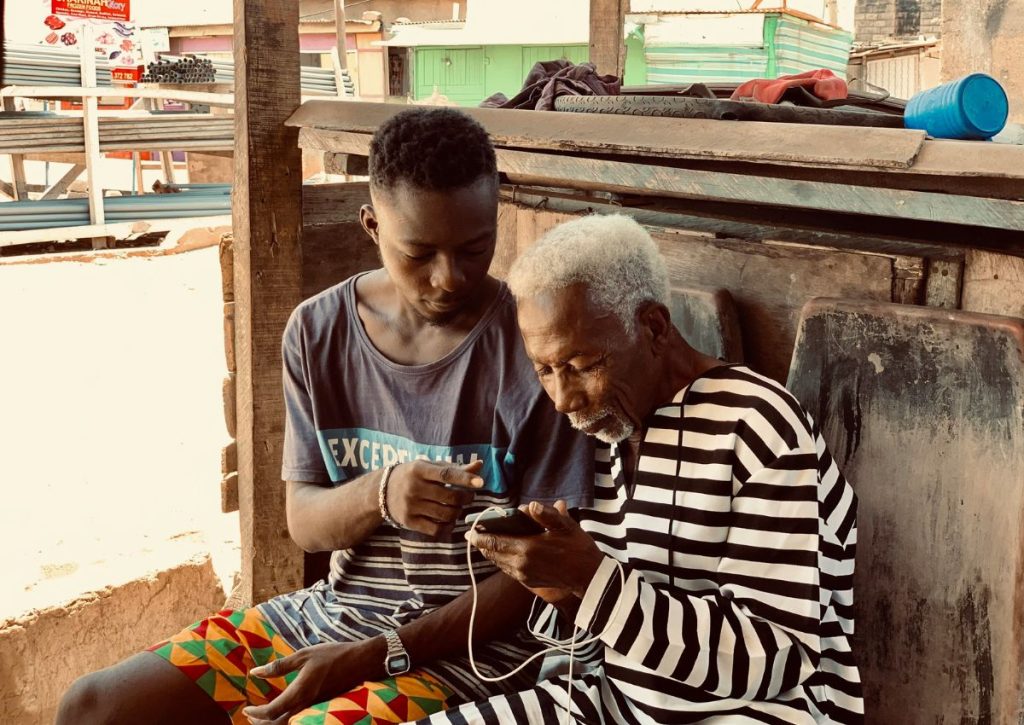
Asking about the highlight of their day invites reflection and positivity. Children love sharing moments that made them happy, proud, or excited. This simple question opens doors to stories they might not otherwise reveal. By showing genuine interest, you validate their experiences and emotions, creating an environment where they feel heard, appreciated, and safe to share more openly in the future.
2. What’s Something You Learned Recently That Excited You?
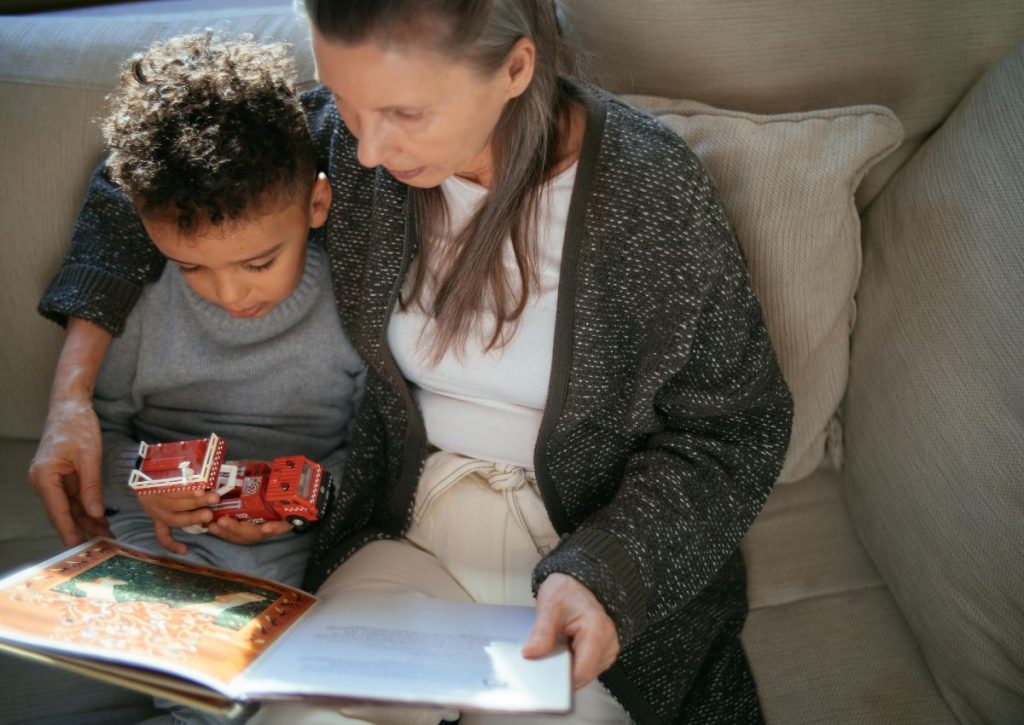
Encouraging curiosity helps grandchildren associate learning with excitement. Their discoveries—big or small—reveal what captures their attention and imagination. Responding with enthusiasm demonstrates that you value knowledge and exploration. Over time, this nurtures a mindset of lifelong learning, and they remember you as someone who celebrates their growth and intellectual curiosity.
3. If You Could Be Any Animal, Which Would You Be and Why?
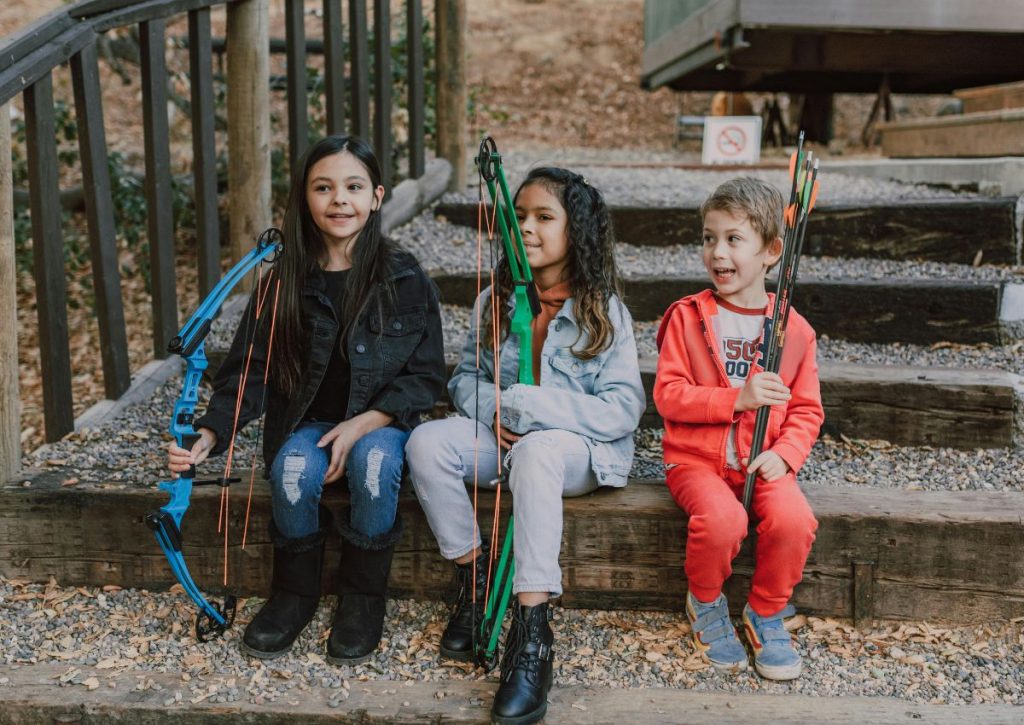
Imaginative questions spark creativity and self-expression. How a child chooses to answer can reveal their personality, interests, and dreams. Such playful queries encourage critical thinking, humor, and storytelling. By engaging in these whimsical discussions, you strengthen bonds while fostering a sense of fun and freedom, leaving your grandchildren with memorable, joyful interactions.
4. Who Is Your Best Friend and Why?

This question helps you understand their social world and values. Discussing friendships reveals their priorities, loyalty, and empathy. Listening carefully shows that you respect their relationships and care about the people who matter to them. Through this, grandchildren see you as an ally in their social life, someone they can trust to discuss feelings, challenges, and joys outside the immediate family circle.
5. What Makes You Feel Brave or Proud?
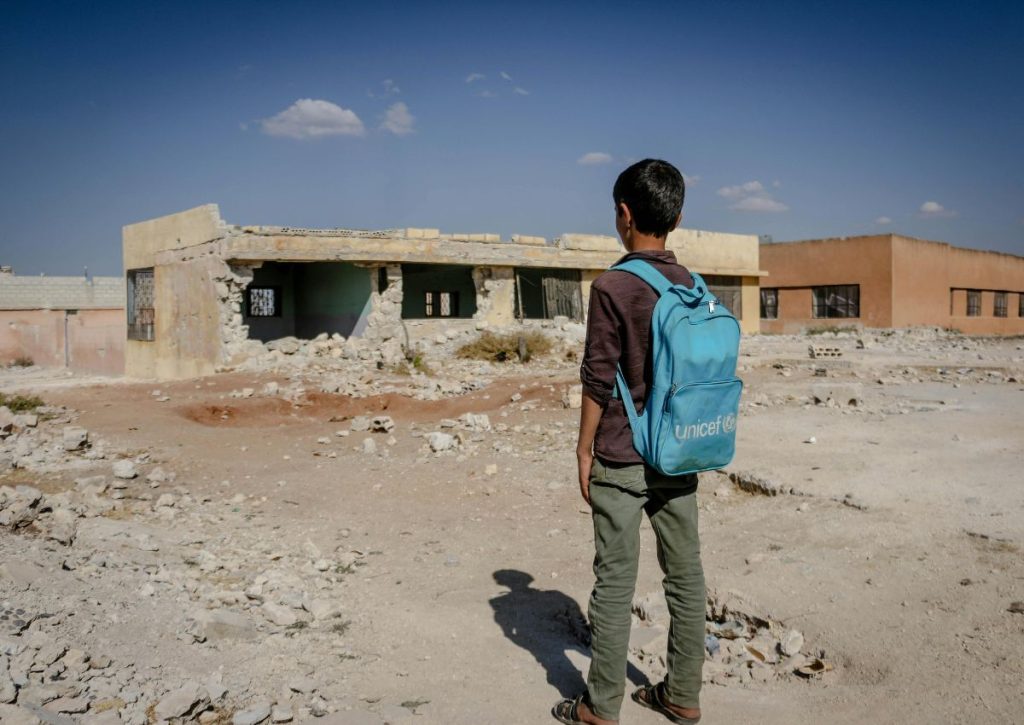
Exploring moments of courage and pride builds self-esteem. Children often need guidance to recognize their achievements or resilience. Discussing bravery—big or small—teaches reflection and self-awareness. Grandchildren remember adults who encouraged confidence and celebrated their inner strength. These conversations reinforce a sense of capability and trust in your support, leaving a lasting impression on their emotional growth.
6. What’s Your Favorite Memory With Me?
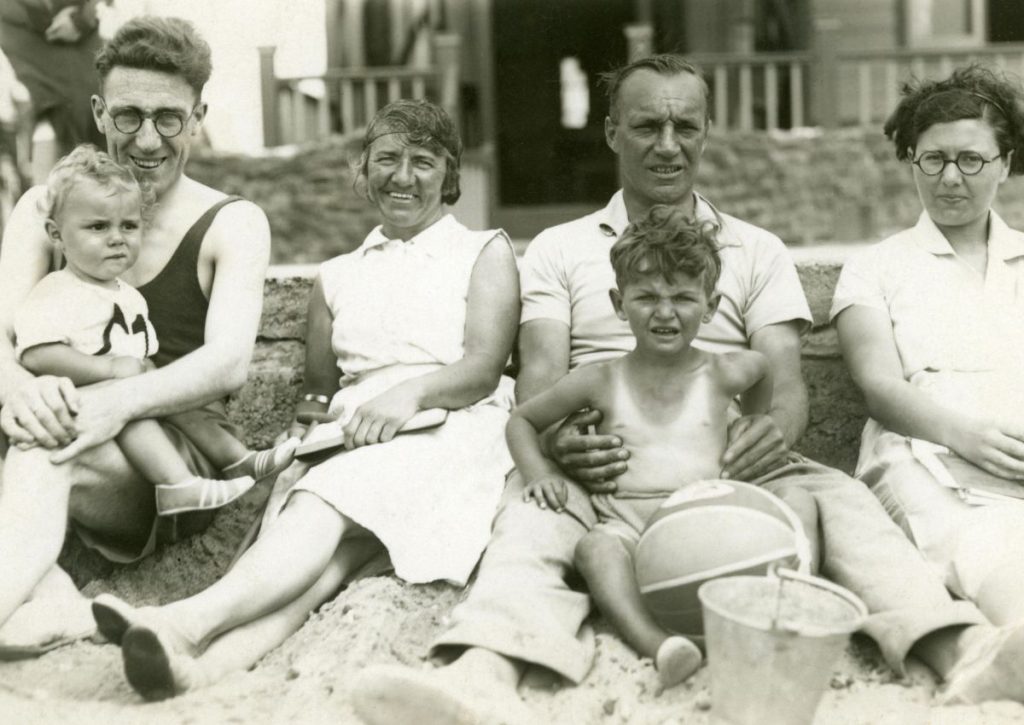
Recalling shared experiences reinforces connection and joy. Asking about favorite memories makes them reflect on positive moments and express affection. Grandchildren love to revisit these times, and your willingness to listen deepens mutual appreciation. These reflections solidify your role as a loving, reliable figure in their life, creating a foundation for future experiences built on trust, fun, and warmth.
7. If You Could Travel Anywhere, Where Would You Go?

Questions about imagination and adventure reveal interests, dreams, and priorities. Children enjoy envisioning new places and experiences. Engaging in these conversations encourages creativity, planning skills, and goal-setting. Your interest in their dreams shows that you support their aspirations, positioning yourself as a mentor who values both imagination and exploration, leaving a lasting impact on their sense of possibility.
8. What Makes You Laugh the Hardest?
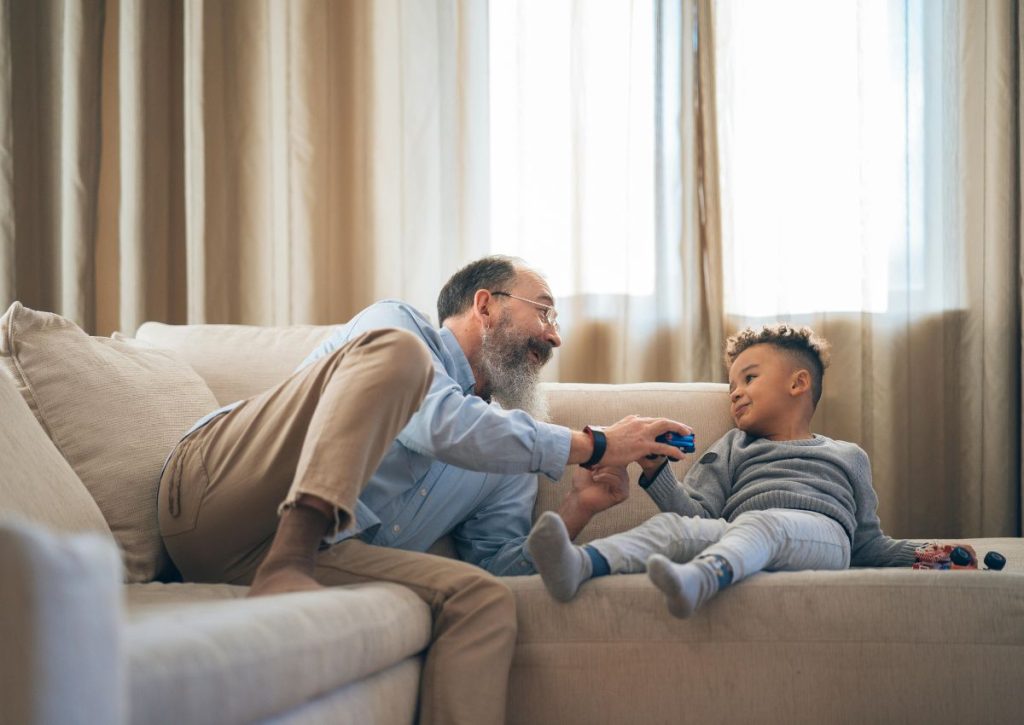
Humor reveals personality and emotional intelligence. Knowing what makes a child laugh helps you connect on a lighthearted, authentic level. Sharing in their joy creates lasting, positive memories and reinforces emotional closeness. By paying attention to their sense of humor, you cultivate a relationship filled with fun, understanding, and warmth, where laughter becomes a bridge connecting generations.
9. What Is Something You’re Curious About Right Now?

This question encourages exploration and intellectual growth. Children’s curiosity often leads to fascinating stories and questions about the world. Discussing their current interests demonstrates support for learning and discovery. Grandchildren perceive you as someone who values their ideas and thoughts, reinforcing a bond built on curiosity, mentorship, and shared excitement about understanding life around them.
10. What’s a Goal You Have This Year?
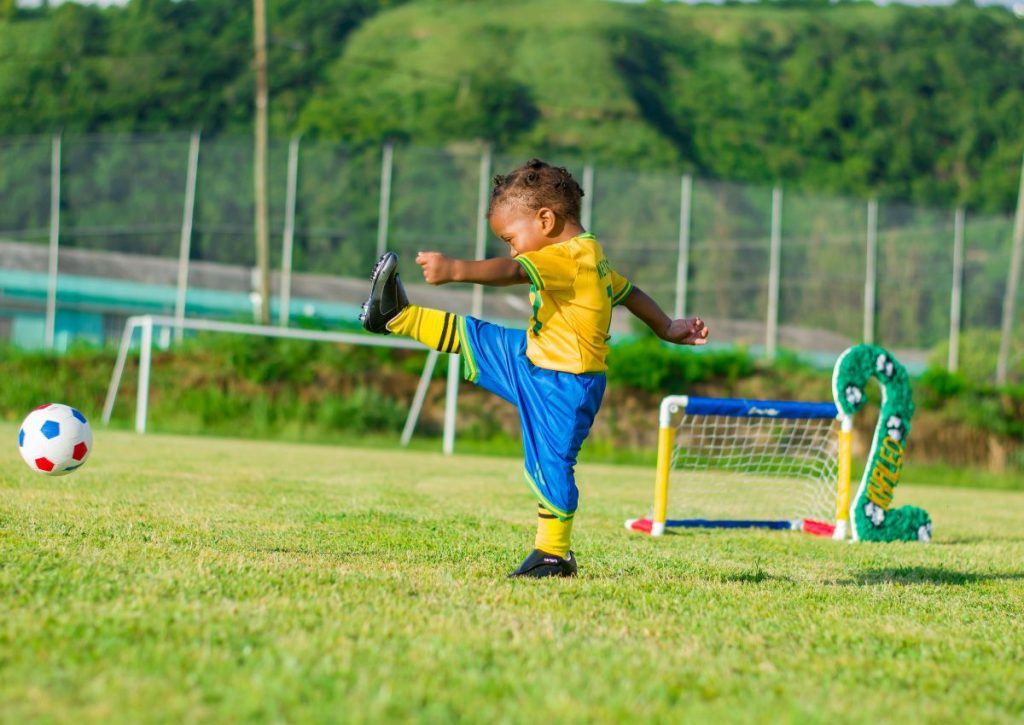
Discussing short-term goals teaches focus, reflection, and planning. Children appreciate adults who take their ambitions seriously, whether it’s mastering a skill, finishing a project, or personal growth. These conversations show that you respect their efforts and dreams. By following up and celebrating progress, you build trust and motivate them, leaving a lasting memory of guidance, encouragement, and pride in their accomplishments.
11. What Book, Movie, or Show Do You Love Right Now?

Asking about current favorites opens a window into their interests and imagination. It sparks conversation about characters, stories, and themes that resonate with them. Engaging in these discussions shows you value their opinions and taste. Sharing your own favorites in return can create bonding moments, foster mutual understanding, and even inspire new shared experiences that become cherished memories.
12. If You Could Have Any Superpower, What Would It Be?

This playful question encourages creativity, problem-solving, and personal reflection. How a grandchild chooses a superpower often mirrors their values, fears, or dreams. Discussing their choices allows for imaginative storytelling, humor, and deep conversation. These moments highlight your willingness to enter their imaginative world, strengthening the emotional connection and making you a fun, supportive presence in their life.
13. What Makes You Feel Loved?

Understanding how a child experiences love and affection is key to building emotional security. They may reveal gestures, words, or shared moments that mean the most. Listening attentively validates their feelings and teaches empathy. Grandchildren remember adults who understand and respond to their emotional needs, establishing a bond of trust, warmth, and unconditional support that can last a lifetime.
14. If You Could Invent Something, What Would It Be?
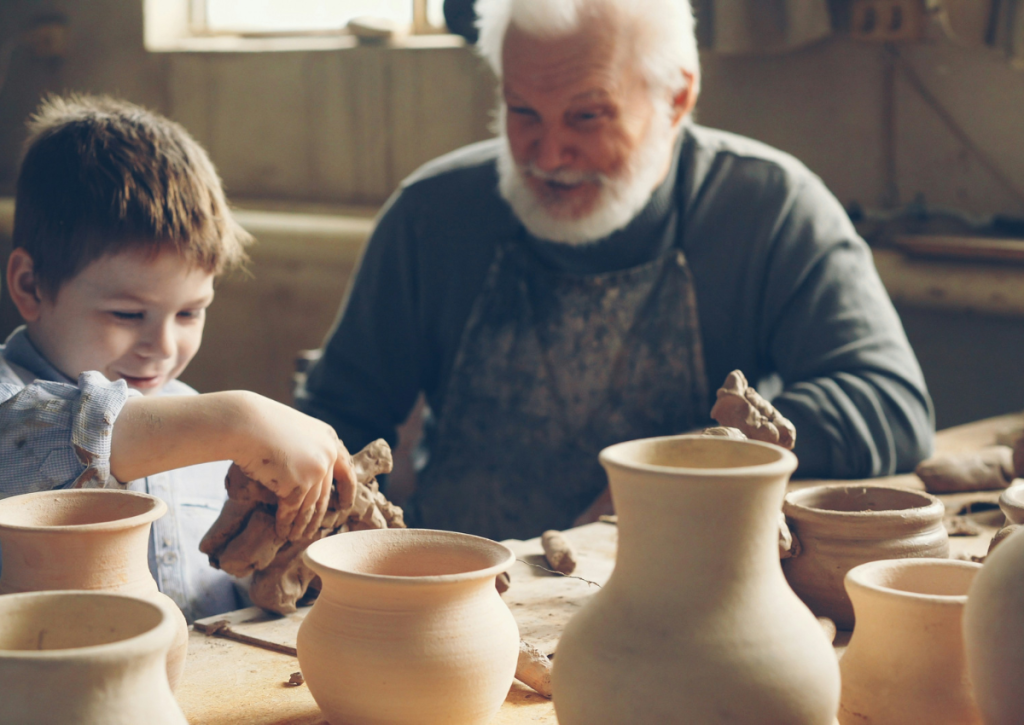
Inventive questions stimulate curiosity and problem-solving. Children enjoy imagining solutions to real or fantastical problems. Discussing their inventions encourages creativity, confidence, and critical thinking. By engaging with their ideas, you show that you value their imagination and intellect. This kind of dialogue reinforces your role as an inspiring figure who celebrates originality and nurtures potential.
15. What’s the Hardest Thing You’ve Done Recently?
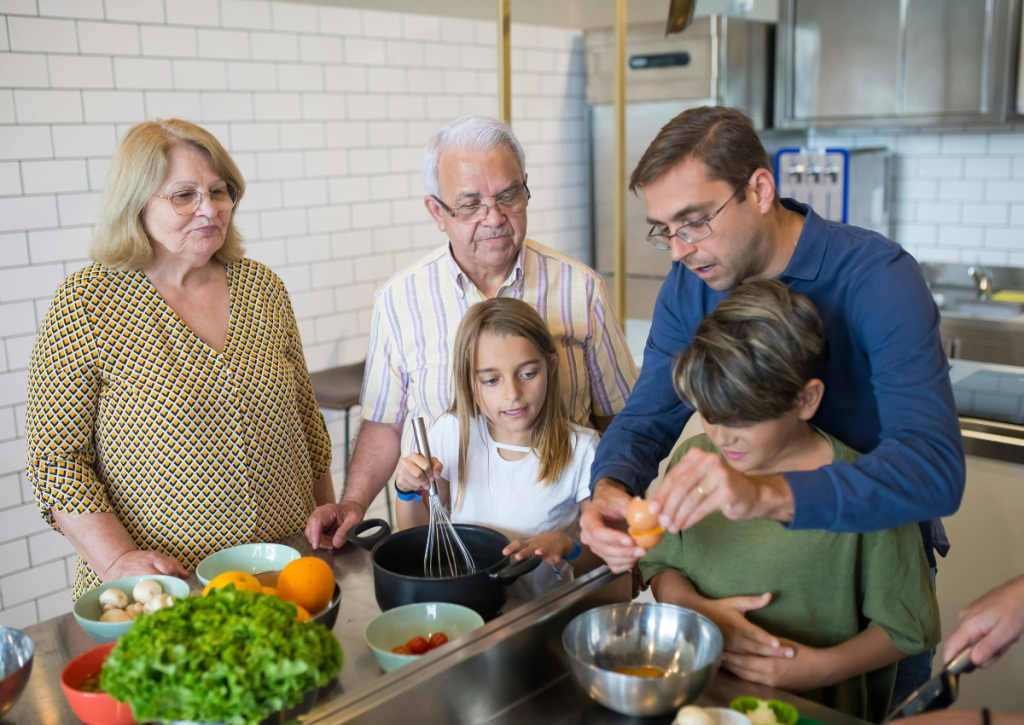
Reflecting on challenges teaches resilience and self-awareness. Children often struggle to articulate their efforts without prompting. Asking about obstacles demonstrates empathy and interest in their experiences. Celebrating their perseverance fosters confidence and determination. Grandchildren remember adults who acknowledge their struggles while supporting growth, making these conversations crucial for building trust, emotional maturity, and lasting bonds.
16. What’s a Secret Talent or Skill You Have?

Exploring hidden abilities encourages self-expression and confidence. Children love to share things they’ve mastered, even small achievements. Highlighting these skills builds self-esteem and pride. By showing excitement and genuine interest, you validate their efforts and creativity, creating a positive feedback loop that strengthens their trust and enthusiasm for sharing more of themselves with you.
17. What’s Your Favorite Family Tradition?

Discussing traditions reinforces identity and belonging. Grandchildren enjoy recalling rituals, celebrations, or special routines. These conversations highlight shared experiences and values. By valuing their perspective on family customs, you encourage participation, respect, and connection. Grandchildren remember the adults who keep traditions alive and meaningful, creating a sense of continuity across generations.
18. What Do You Like Most About School?
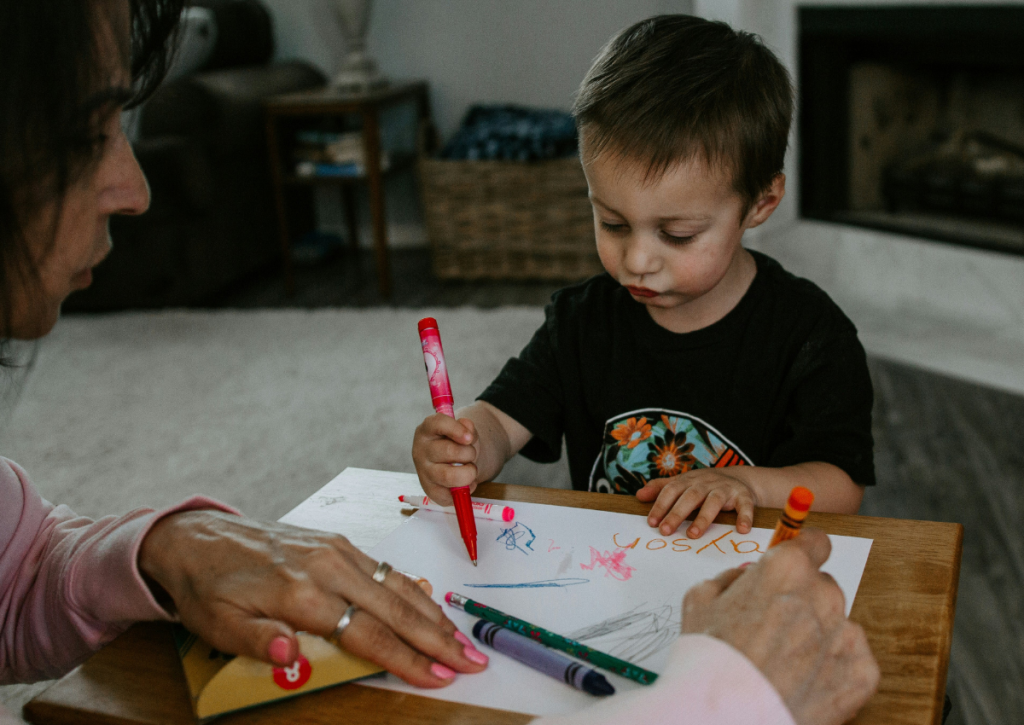
Asking about school uncovers their interests, challenges, and social dynamics. Children often reveal subjects, activities, or friendships they value. Engaging in these discussions shows that you care about their daily experiences. By exploring both successes and struggles, you provide guidance, encouragement, and empathy, leaving a lasting impression as a supportive figure invested in their growth and learning.
19. Who Inspires You and Why?
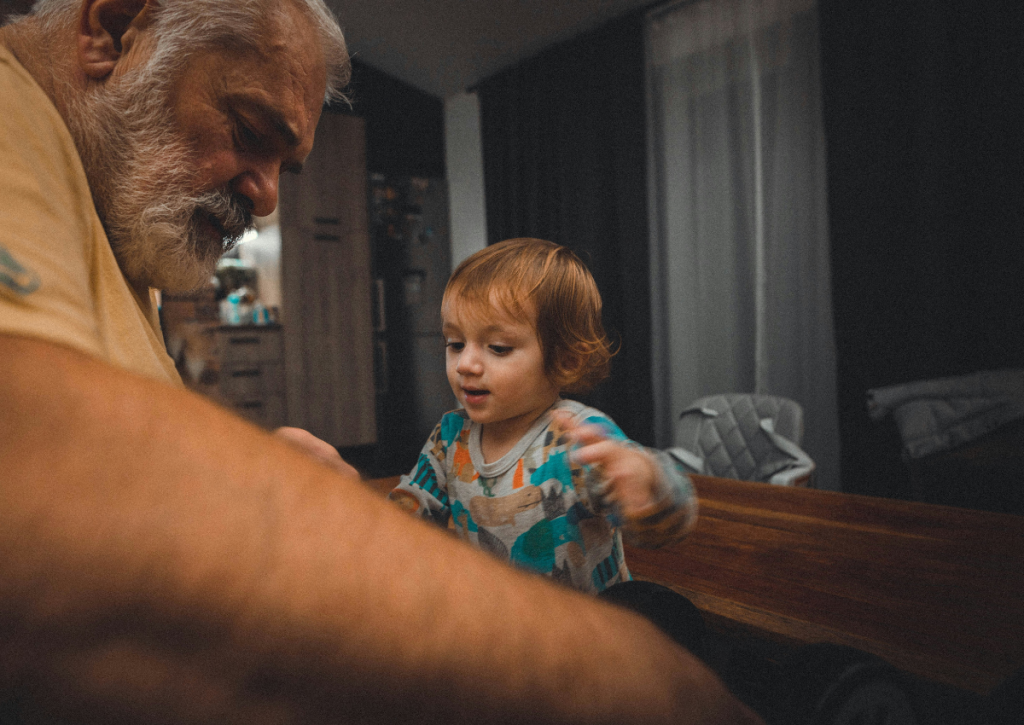
Understanding role models provides insight into their values, ambitions, and worldview. Children often admire qualities they wish to emulate. Discussing inspirations encourages reflection and self-discovery. By listening and responding thoughtfully, you model respect for others’ achievements and ideals. Grandchildren see you as someone who nurtures their aspirations, reinforcing a bond grounded in admiration, guidance, and shared values.
20. What Makes You Feel Brave?

Exploring moments of courage helps children recognize and articulate their strengths. Discussing bravery—whether facing fears, trying new things, or helping others—builds self-awareness and confidence. Your interest reinforces emotional growth and resilience. Grandchildren remember adults who celebrate their courage, teaching them that challenges are opportunities and that you are a reliable source of encouragement and pride.
21. If You Could Change One Thing About the World, What Would It Be?
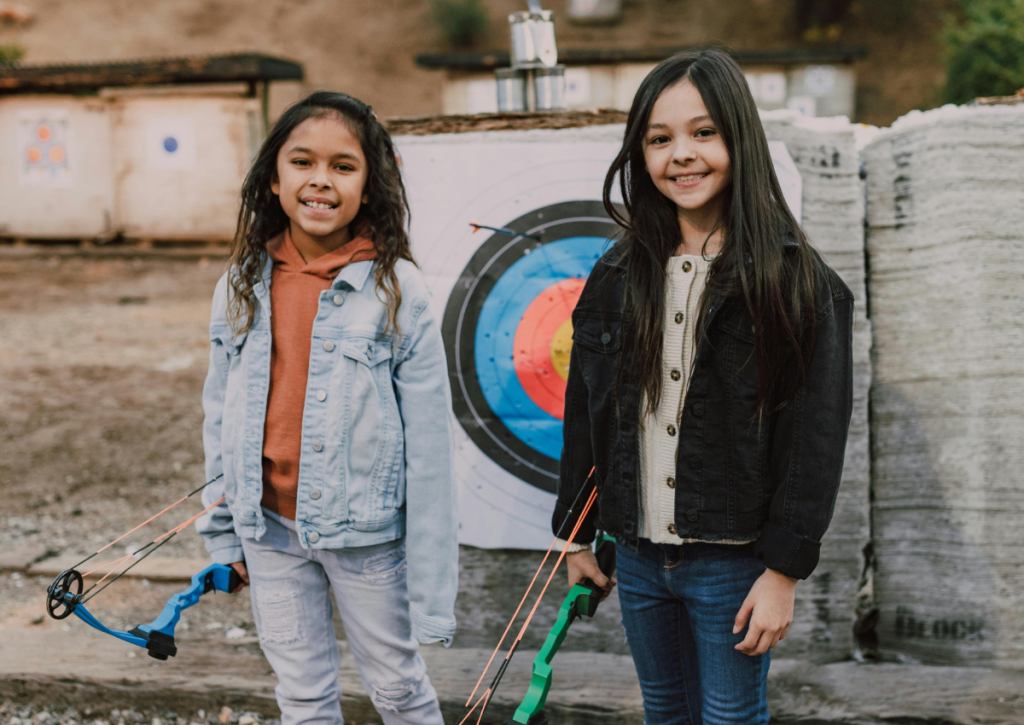
This question sparks empathy, creativity, and critical thinking. Children often dream of improving fairness, safety, or the environment. Discussing solutions encourages problem-solving and moral reflection. Engaging seriously with their ideas shows that you value their perspective and imagination. These conversations inspire hope, compassion, and awareness, leaving a lasting impression of your curiosity, guidance, and support.
22. What’s Your Favorite Way to Spend a Weekend?
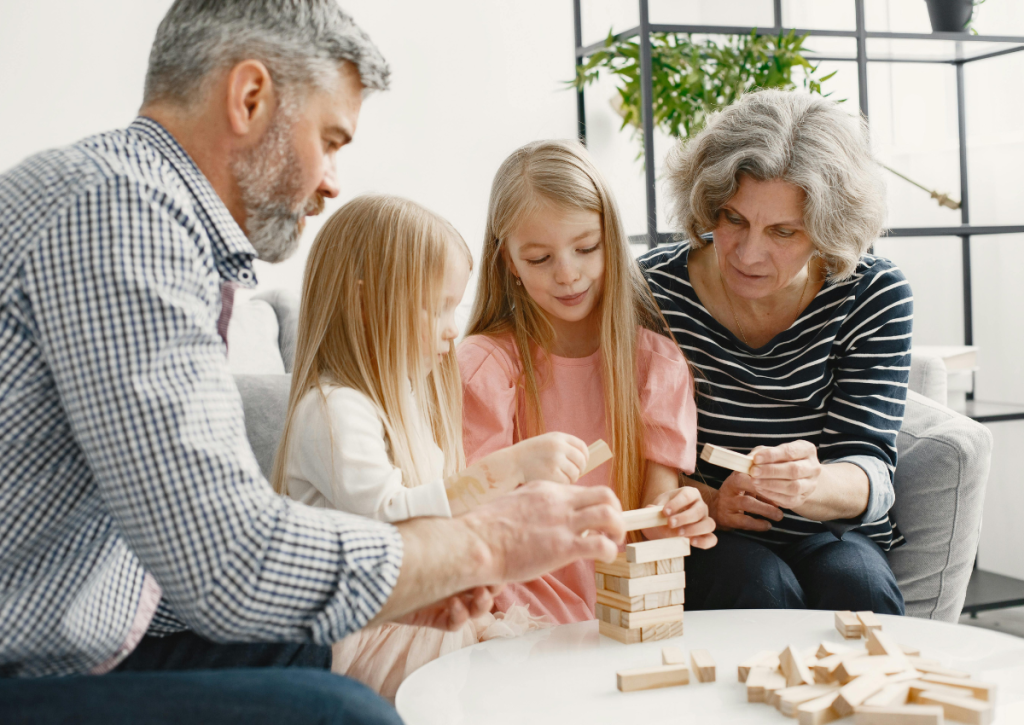
Understanding how children like to relax and have fun gives insight into their personality and passions. Whether it’s sports, crafts, reading, or exploring, asking this question shows interest in their happiness. Participating in or planning activities together strengthens bonds. Grandchildren remember the adults who share joy, adventure, and leisure, creating positive memories associated with time spent together.
23. What’s Something That Makes You Feel Special?
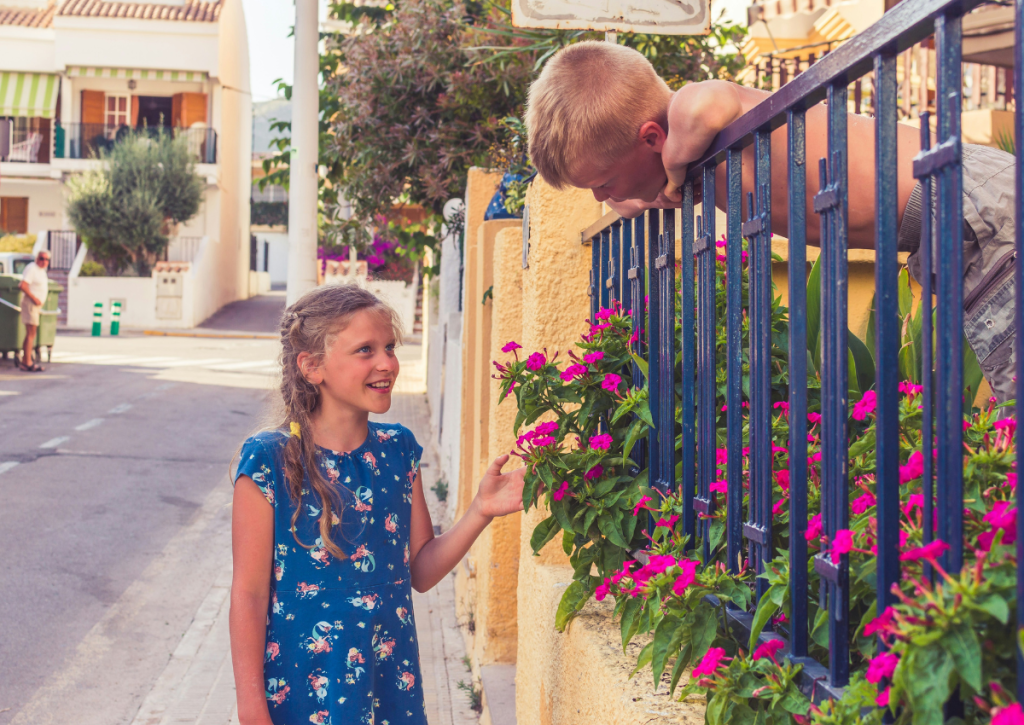
Exploring moments of uniqueness builds self-esteem and emotional intelligence. Children enjoy recognizing the things that set them apart, whether skills, traits, or experiences. Discussing these moments encourages pride and self-reflection. By acknowledging their individuality, you help grandchildren feel valued, loved, and understood, reinforcing your role as a supportive, attentive, and affirming presence in their lives.
24. What’s Your Favorite Joke or Funny Story?

Sharing humor creates connection and emotional bonding. Children love to tell jokes or recount funny experiences, and listening with enthusiasm validates their sense of humor. Participating in laughter fosters joy and strengthens trust. Grandchildren remember the adults who laugh with them, creating lighthearted memories that make interactions fun, memorable, and emotionally enriching.
25. What Would You Do If You Could Be Invisible for a Day?
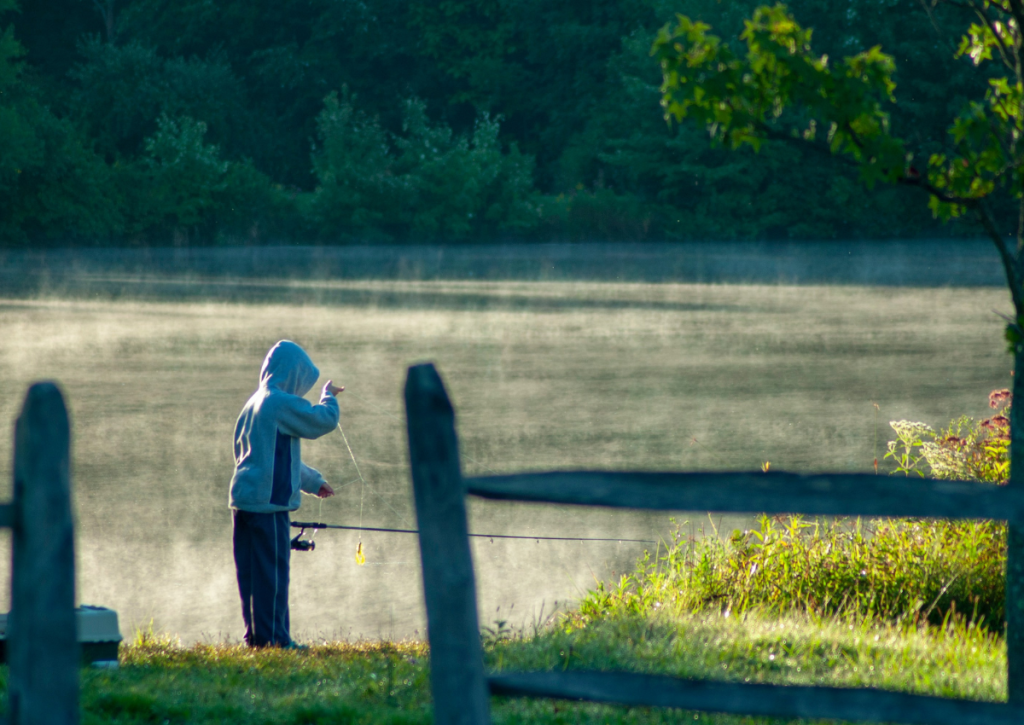
Imaginative questions encourage creativity and problem-solving. Children often share their playful, curious, or mischievous ideas in response. Discussing these scenarios stimulates storytelling, critical thinking, and humor. Engaging with their imagination shows openness and respect for their ideas, strengthening the bond and creating shared moments of fun and wonder.
26. What Are You Most Proud of Right Now?
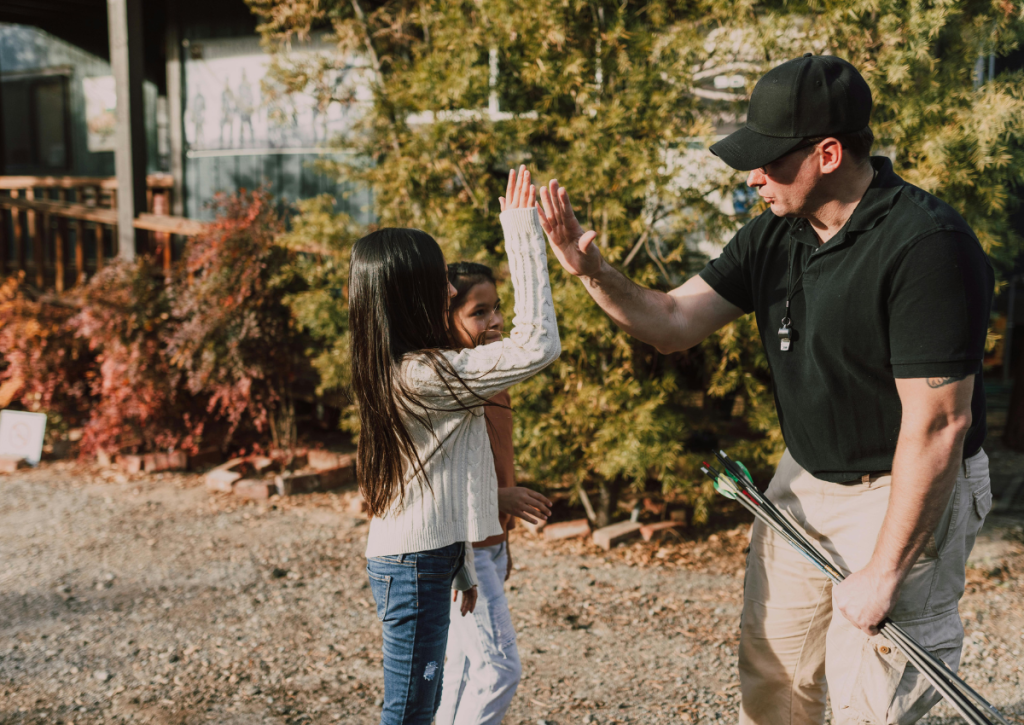
Encouraging reflection on achievements reinforces self-confidence and gratitude. Children may highlight personal accomplishments, milestones, or kind acts. Listening and celebrating these moments validates their efforts. Grandchildren remember adults who recognize and appreciate their progress, fostering pride, motivation, and a sense of being valued in your supportive and attentive presence.
27. What’s Your Favorite Thing to Do Outdoors?
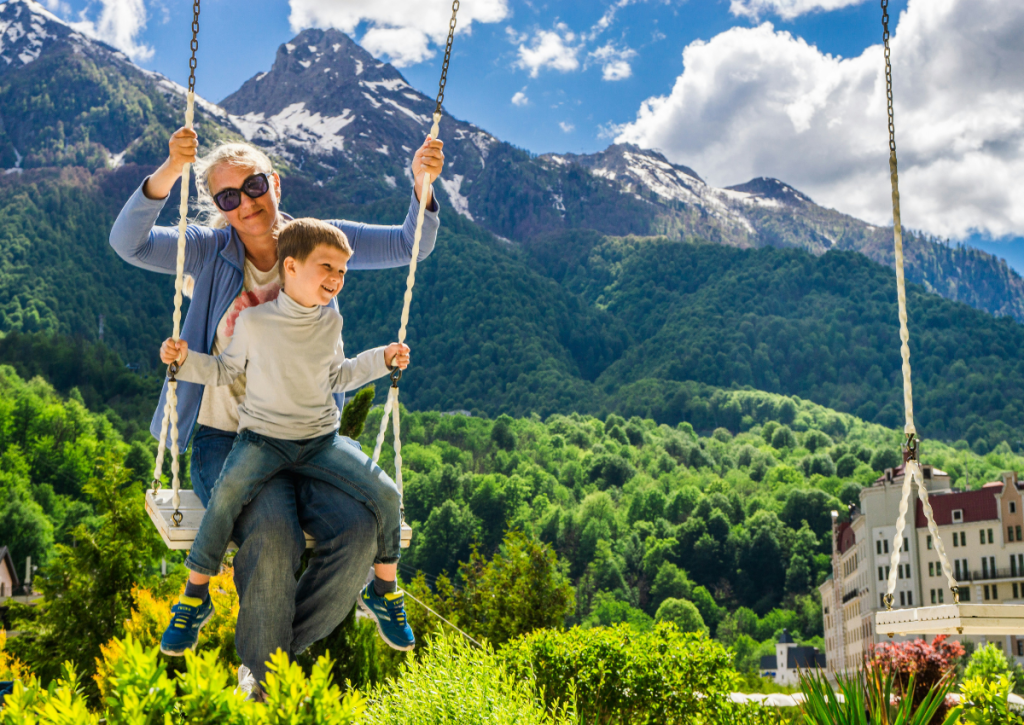
Exploring outdoor interests encourages physical activity, curiosity, and appreciation of nature. Discussing favorite activities shows you value their hobbies and personal joy. Sharing outdoor experiences together strengthens the bond, teaches new skills, and fosters lasting memories. Grandchildren recall the adults who engaged in playful or adventurous moments, reinforcing connection and shared excitement for the world around them.
28. What’s the Most Exciting Thing You’ve Ever Done?
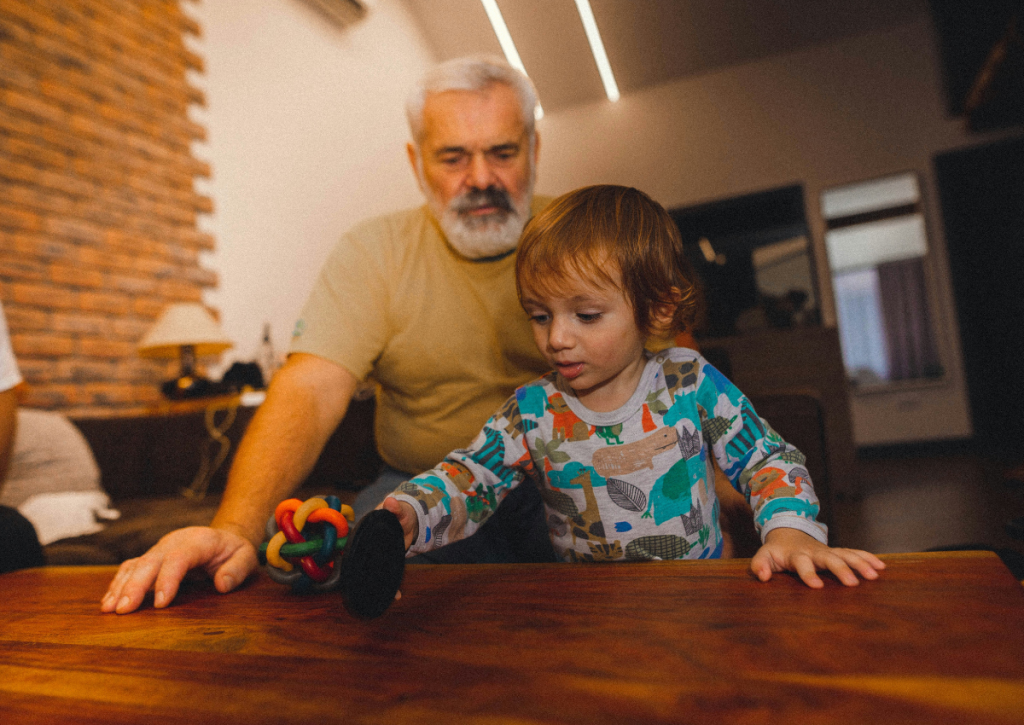
Recalling thrilling experiences helps children articulate emotions, accomplishments, and adventures. Discussing excitement encourages storytelling, reflection, and pride. Your engagement demonstrates that you value their experiences and enthusiasm. Grandchildren remember adults who listen actively and share in their joy, creating a sense of trust, celebration, and lasting emotional connection.
29. What Would You Do if You Could Be the Teacher for a Day?

This question inspires creativity, leadership, and empathy. Children imagine ways to teach, share, or change the classroom, revealing priorities and values. Discussing their ideas encourages responsibility, problem-solving, and expression. Grandchildren remember adults who took their thoughts seriously, fostering confidence and a sense of validation in their opinions and leadership potential.
30. What Do You Think Grown-Ups Don’t Understand About Kids?

Encouraging children to voice frustrations or perspectives promotes empathy, communication, and reflection. Discussing misunderstandings helps them feel heard and respected. Your openness demonstrates willingness to understand and bridge generational gaps. Grandchildren appreciate adults who listen without judgment, reinforcing a relationship built on trust, validation, and mutual respect.
31. What Makes You Feel Calm or Relaxed?
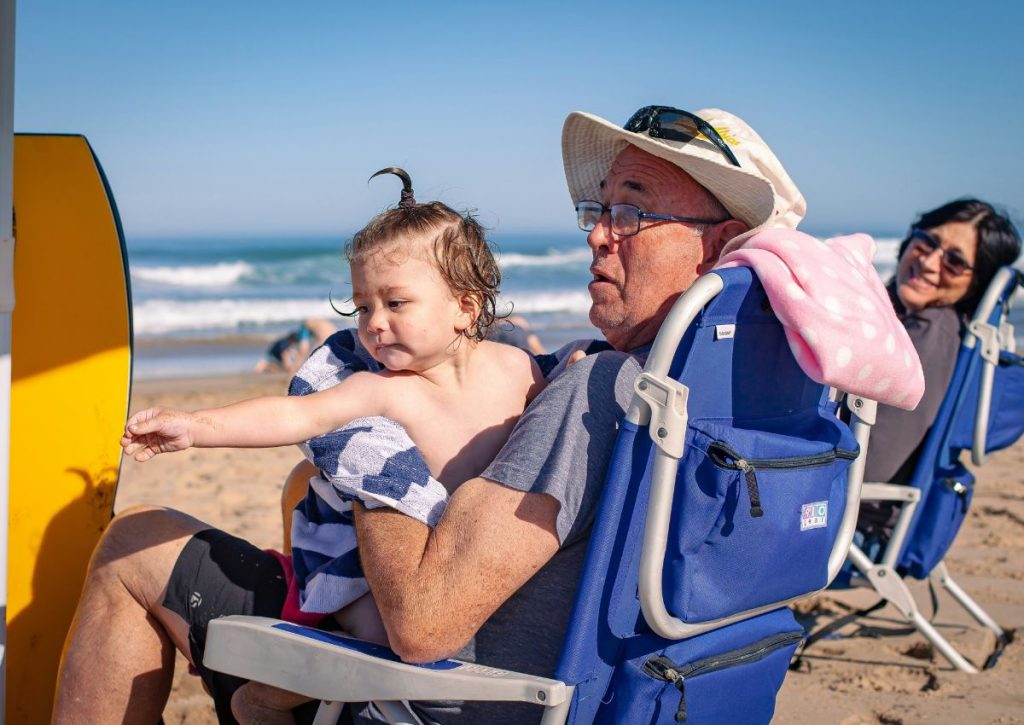
Understanding how children manage emotions fosters emotional intelligence and coping skills. Discussing calming strategies teaches reflection and self-awareness. Engaging in these conversations shows concern for their well-being and offers practical guidance. Grandchildren remember adults who support emotional growth and provide comfort, creating a foundation of trust, security, and understanding.
32. If You Could Have Any Job When You Grow Up, What Would It Be?
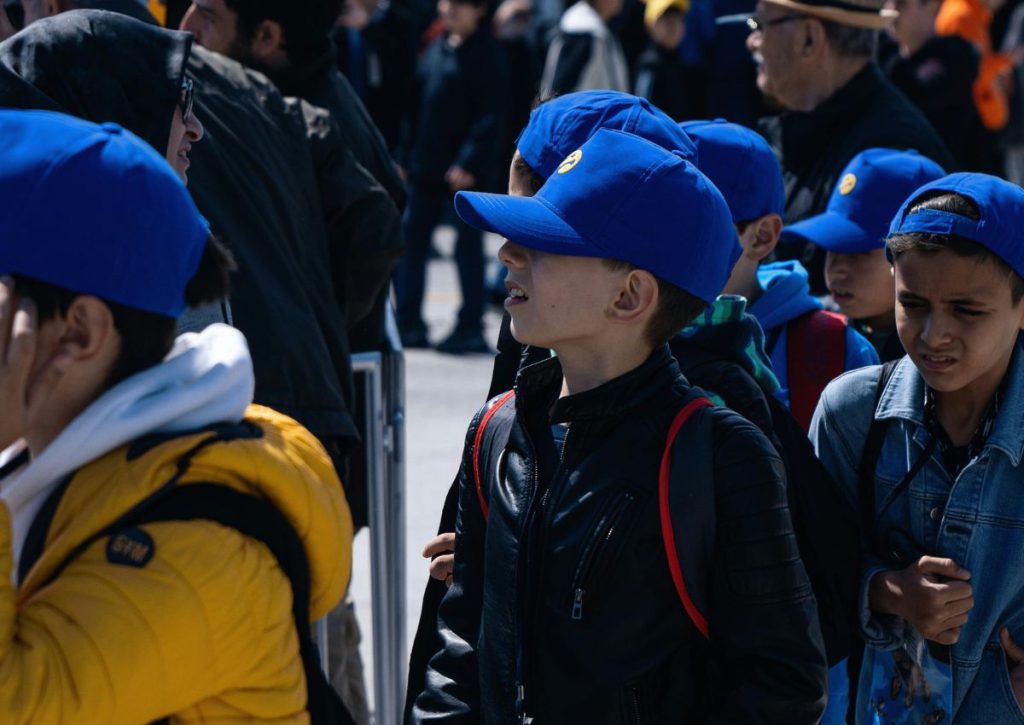
Exploring career aspirations encourages imagination, goal-setting, and self-reflection. Children’s answers reveal passions, values, and dreams. Discussing possibilities shows support for their ambitions and reinforces confidence. Grandchildren remember adults who encouraged exploration and provided guidance, fostering motivation and a lasting impression of mentorship and belief in their potential.
33. What’s Something You Want to Get Better At?
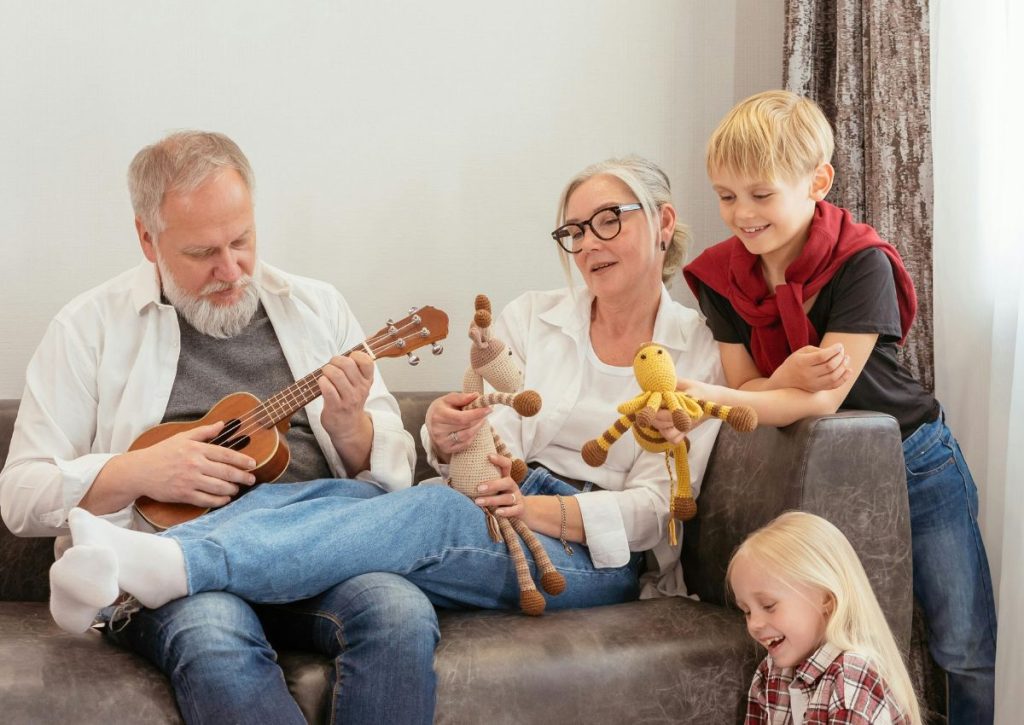
Discussing areas for improvement promotes growth mindset, reflection, and perseverance. Children learn to set goals and recognize effort. Engaging in these discussions shows encouragement and investment in their personal development. Grandchildren remember adults who celebrated effort, progress, and resilience, reinforcing confidence and a sense of being supported in their journey of learning.
34. What Do You Like Most About Yourself?

Encouraging self-reflection and positivity helps children recognize strengths, traits, and achievements. This question promotes confidence, self-awareness, and emotional well-being. Listening attentively and affirming their qualities validates their sense of self-worth. Grandchildren remember adults who celebrated their uniqueness, fostering a lasting bond built on love, trust, and appreciation for who they are.

